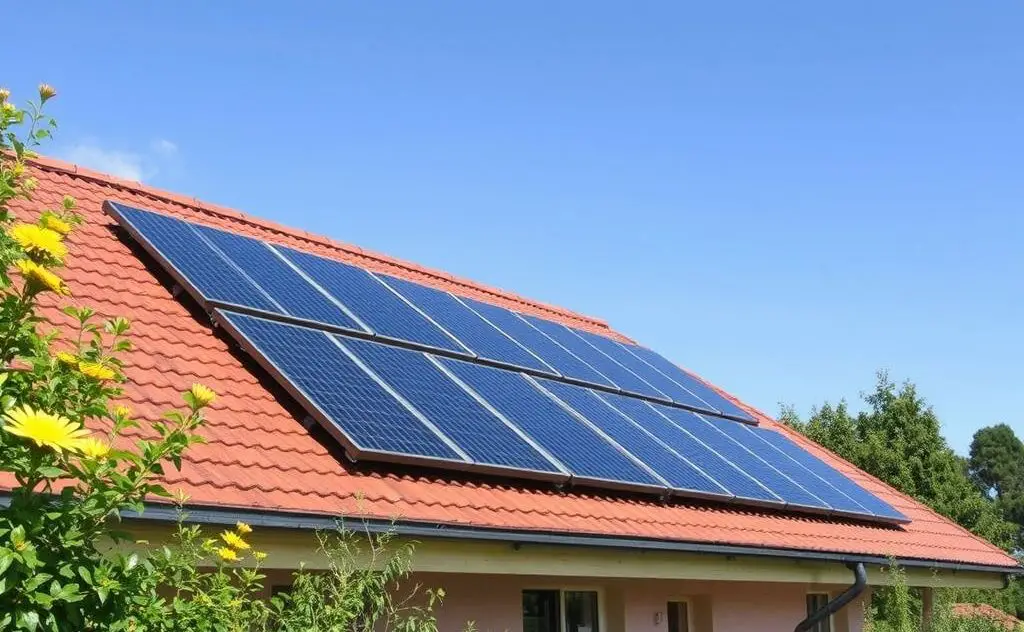The most energy-efficient solar heater utilizes advanced photovoltaic technology to convert sunlight into heat, maximizing energy output and minimizing costs.
Solar water heaters offer an eco-friendly way to cut energy bills while ensuring hot water supply. With rising energy costs, choosing the right system is crucial for maximum efficiency and savings.

How Solar Water Heaters Work
Solar thermal systems use sunlight to heat water directly, unlike photovoltaic panels that generate electricity. The two main components are:
- Solar collectors – Absorb sunlight and transfer heat to water
- Storage tank – Holds heated water for later use
Some advanced models include heat exchangers that transfer warmth from collector fluid to your home’s water supply through copper coils.
Active vs Passive Systems
Active Solar Heaters
These use pumps and controls for better performance:
| Type | Best For | Efficiency |
|---|---|---|
| Direct Circulation | Warm climates | 85-90% |
| Indirect Circulation | Cold climates | 75-85% |
Passive Solar Heaters
More affordable but slightly less efficient:
- Thermosiphon systems – Use natural convection (70-80% efficiency)
- Integrated collector-storage – Simple design for daytime use (60-70% efficiency)

Most Efficient Solar Heater Types
Evacuated Tube Collectors
These offer the highest efficiency (up to 90%) with minimal heat loss. The vacuum-sealed tubes prevent heat escape, making them ideal for cold climates. Similar technology is used in high-end pool heaters.
Flat Plate Collectors
Common and affordable (75-85% efficiency), these work well in moderate climates. The insulated design resembles some solar window heaters.
Key Selection Factors
Household Size
- 1-2 people: 30-40 gallon system
- 3-4 people: 50-60 gallon system
- 5+ people: 80+ gallon or dual system
Climate Considerations
Sunny areas can rely solely on solar, while cloudy regions may need hybrid systems. According to energy.gov, proper sizing can reduce water heating bills by 50-80%.
Financial Benefits
The U.S. government offers tax credits covering 30% of solar water heater costs (up to $2,000). Many states provide additional incentives. Over 20 years, a typical system can save $5,000-$10,000 in energy costs.
Maintenance Tips
- Inspect collectors annually for debris
- Check fluid levels in active systems
- Flush tank every 3-5 years
- Monitor for leaks in piping
With proper care, quality solar water heaters last 15-20 years. The Solar Reviews site provides excellent maintenance guides.
